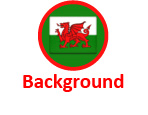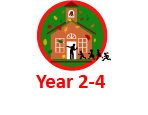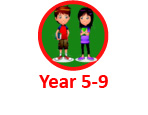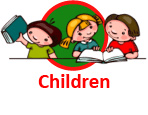Background
Wales

- Wales is a Celtic country.
- 3 million people live in Wales.
- Cardiff is the capital of Wales.
- Snowdon is the highest mountain in Wales at 3,560 feet high (1085 metres).
- There are more castles per square mile in Wales than in any other country in the world.
- There are 870 miles of coastline in Wales.
- There are 5 Areas of Outstanding Natural Beauty here in Wales: Wye Valley, the Anglesey Coastline, Llŷn Peninsula, Gower Peninsula and the Clwydian Mountain Range.
- There are 3 National Parks here: Snowdonia, Pembrokeshire Coast, Brecon Beacons.
- In 1865, 154 Welsh men and women left Liverpool dock to establish a Welsh colony in Patagonia, Argentina. Around 5,000 people still speak Welsh in Patagonia today.
- The National Anthem of Wales is ‘Hen Wlad Fy Nhadau’ (Land of My Fathers) written by Evan James and James James in Pontypridd in 1856.
- The National Day of Wales: 1 March (St David’s Day).
- Wales is a passionate nation when it comes to sport, and everything comes to a halt for international rugby and football games!
The Welsh Language

- Welsh is one of the strongest minority languages in Europe.
- Half a million people in Wales can speak Welsh.
- Welsh is one of the Celtic languages, and is one of the oldest languages in Europe – dating back to the sixth century.
- The Welsh language is a living language.
- Children are taught Welsh in school until they’re 16 years old.
- Since 2012, Wales has a Welsh Language Commissioner to protect the rights of Welsh speakers.
- The ability to speak Welsh is very beneficial.
- Welsh education is significantly more popular now than since the first ever designated Welsh primary school opened in 1947. The parents of children in Wales are demanding more Welsh language provision.
- There is increasing demand for Welsh education.
- One of the Welsh Government’s ambitions is to increase the number of Welsh speakers to a million by 2050.
Gwynedd

Did you know ?
- Gwynedd is a county in North West Wales.
- The current area measures 2,548 square kilometres (983.78 square miles, a little bit less than Luxembourg) with a population of 121,874 (2021 Census).
- Gwynedd is the county that has Welsh speakers as the largest proportion of its population - 64.4%.
- In Gwynedd there are 93 primary schools, 14 secondary schools, 2 special needs schools, 4 Primary Language Centres and 1 Secondary Language Centre.
- Gwynedd Council has a bilingual policy which is implemented in every school.
- The aim is to ensure that every pupil in the county has age-specific and balanced bilingual skills in order for them to be full members of the bilingual society they’re part of.
- The language centres support the schools to implement the County Language Policy and with great success – over 1,473 primary pupils and 477 secondary pupils between 2005 and 2015.
Education in Gwynedd
Welsh is:
 the language of schools in Gwynedd;
the language of schools in Gwynedd;
- the language of business and communication in schools in Gwynedd;
- the language of teaching and learning in every subject (except for English); and
- the language of teachers, pupils and every aspect of school life.
Gwynedd Welsh in Education Strategic Plan 2023-2032
Centres for newcomers
In Gwynedd, a specific service is provided for newcomers in Language Centres.
The aim of the Language Centres is to provide an intensive Welsh language course for children moving to the area in order for them to blend into the bilingual society and fully participate in bilingual education experiences.
This provision is central to supporting primary and secondary schools to implement the Language Policy.
The teaching is based on immersive language methods and the classes are very small.
See: Language Immersion Education below
Welsh Language Charter - click here
Multilingualism

Multilingualism means the ability to speak more than one language.
Every pupil in Gwynedd receives bilingual education.
The benefits of multilingualism:
- International research shows that multilingualism has cognitive, linguistic, academic and social benefits.
- A multilingual person has more than one culture and values associated with those cultures.
- Research by Cenoz and Genesee (1998) shows that the divergent thinking of multilingual pupils is better than that of monolingual pupils.
- Research by Cenoz (2003) shows that it’s easier for multilingual pupils to learn additional languages.
- Tomas and Collier (2001) found that pupils following bilingual programmes managed to achieve higher levels of achievement than their monolingual counterparts.
- Multilingualism has a positive effect on the linguistic and educational development of children (Cummins, 2001)
10 Good Reasons for Learning Welsh

- There are 562,000 Welsh speakers in Wales.
- 65.4% of people in Gwynedd speak Welsh.
- Every child in Gwynedd receives bilingual education – in accordance with the Gwynedd Language Policy.
- The Gwynedd Language Policy aims to ensure that every pupil in the County has balanced bilingual skills.
- Gwynedd primary schools set a solid foundation for the Welsh language.
- Continuity is ensured in the Welsh language as a subject and as a learning medium for pupils between 5 and 16 years old.
- Having multilingual skills leads to academic success (around 10% higher than monolingual education).
- Learning Welsh makes it easier to learn additional languages.
- Speaking Welsh leads to an understanding of another culture that increases the sense of belonging.
- The ability to speak Welsh is one of the many skills viewed as desirable by employers.
Gwynedd Immersion Education System
There are 3 primary immersion centers year 2-4 and 3 transition immersion centers year 5-9 in Gwynedd. The primary centers are located in Caernarfon, Llangybi and Dolgellau and the year 5-9 transition centers are located in Porthmadog, Tywyn and Bangor.
Vision and Mission
- Setting a solid foundation for pupils in the Welsh language in order to allow them to blend into the bilingual society and fully participate in the experiences and benefits of bilingual education.
- Supporting primary and secondary schools to implement the Gwynedd Language Policy.
Objectives
- Providing immersion education in the Welsh language to pupils who are newcomers to Gwynedd.
- Providing high quality education by specialists in immersion education.
- Providing an integrated service to pupils.
- Developing, nurturing and supporting pupils.
- Developing the Welsh language through the medium of education, culture, sports, music and literature.
Success
- There’s a good relationship between the schools and the centres.
- The success is evident when the pupils return to their schools and communities with a strong foundation in the Welsh language after a term of intensive learning.
- In order to ensure the appropriate follow-up in schools, the centres’ teachers will offer after care to all pupils after returning to their schools, in cooperation with the teachers at the schools.
Language Policy 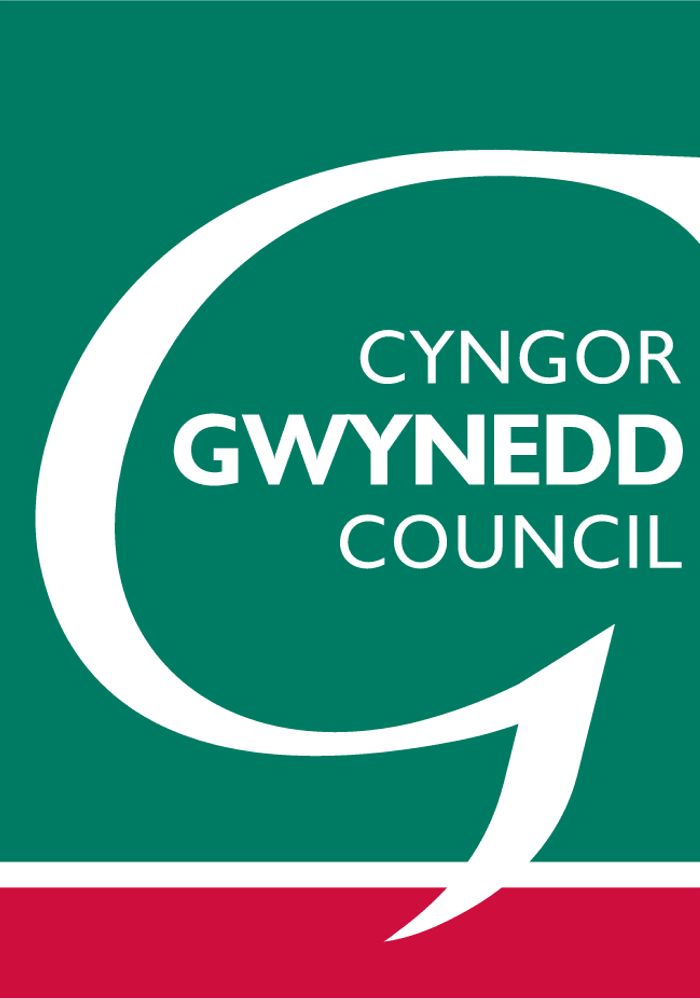
Primary
The aim of the Language Policy across every primary school in the county is the same, namely to develop the ability of all pupils to be confident in both languages by the end of KS2. Welsh is the official language of assessments in the school at the end of the Foundation Stage. In KS2, we are still developing pupils’ grasp of the Welsh language focussing on developing their skills in both languages.
Secondary
In secondary school, all pupils who have reached the required level, i.e. 3+ at the end of KS2 are expected to follow First Language Welsh at KS3 in order to ensure the appropriate progression and continuity. It is hoped that these pupils will study Welsh and English as subjects until the end of Year 11. Secondary schools build on the foundation set in the primary by ensuring that all pupils continue to develop skills in Welsh and English.
Special Needs Education
The Welsh in Education Strategic Education Plan ensures that children and young people with special educational needs (SEN) are given equal opportunities linguistically in terms of bilingual education.
Welsh medium and bilingual provision is available for the full range of SEN. Pupils and their parents have access to a completely bilingual service.
Objectives of the Welsh in Education Strategic Education Plan
The Language Policy aims to ensure that all pupils in the county have balanced bilingual skills in order for them to be full members of the bilingual society they’re part of.
Even though the general aim of the policy is bilingualism, the focus in the early years (until the end of the FS) is on Welsh in order to set a solid foundation for further development. Practically, this means that the majority of schools will start to introduce English formally at the end of the FS. In the other key stages, schools are expected to plan in order to develop pupils' grasp of Welsh.
This means that Welsh is taught as a first language in the county’s primary schools.
Language Immersion Education

‘Language immersion education’ is a method of learning an additional language where the additional language is used as the class’ teaching medium. Immersion education has now been firmly established as a successful and effective method of learning an additional language. Its aim is to develop a high standard of competence in the language.
Benefits of Immersion Education
Research shows that pupils who have experienced immersion education:
- excel academically (Gallagher and Hanna, 2002);
- can learn a third and fourth language easier (Cenoz and Valencia, 1994);
- understand and embrace other cultures (Gallagher and Hanna, 2002);
- are more aware of identity and culture and have a better sense of community (Baker, 2003);
- gain more self-respect (Baker, 2003); and
- develop better communication and social skills (Cummins 2000).
Feedback 
"Thank you very much. We have complete faith that his ability to communicate in Welsh will be very beneficial to his education. We feel the centre is exceptional and we’d like to thank everyone for their efforts, dedication and professionalism."
"We couldn’t have asked for a better start to my child’s Secondary education. My daughter made new friends in the centre. This subsequently made it easier for her to settle into the area."
"I feel that the Centre really helps the children learn the language. The staff are patient and friendly."
"My child has greatly benefitted from attending the centre, not just because of what they achieved there educationally, but also because they now feel like full members of society and can contribute to it."
"I’m very happy that my children have had the opportunity to come to the Language Centre. They’ve enjoyed every second of the course. From the excitement of waiting for the taxi in the morning to the time they got home."
"My child has gained a lot of confidence and she can move forward with a new positive attitude towards the Welsh language when she returns to school."
"It’s great to hear her speaking Welsh confidently whilst playing with her new friends."
"The confidence the children gain is extraordinary and it’s hard to believe how quickly they learn the language."
"I can’t praise the teachers enough, … has learnt a new skill that will be of great help to him in future."
Information coming soon...
learnwelsh.cymru North West - click here
Bangor University - learnwelsh.cymru North West - click here

